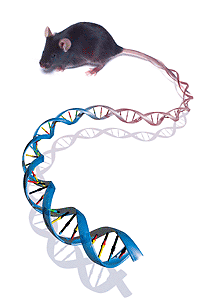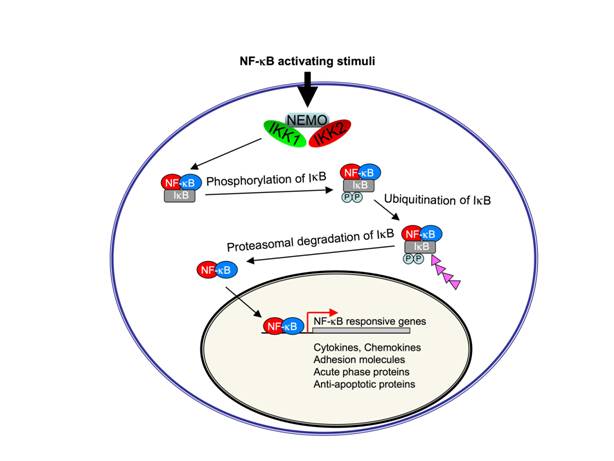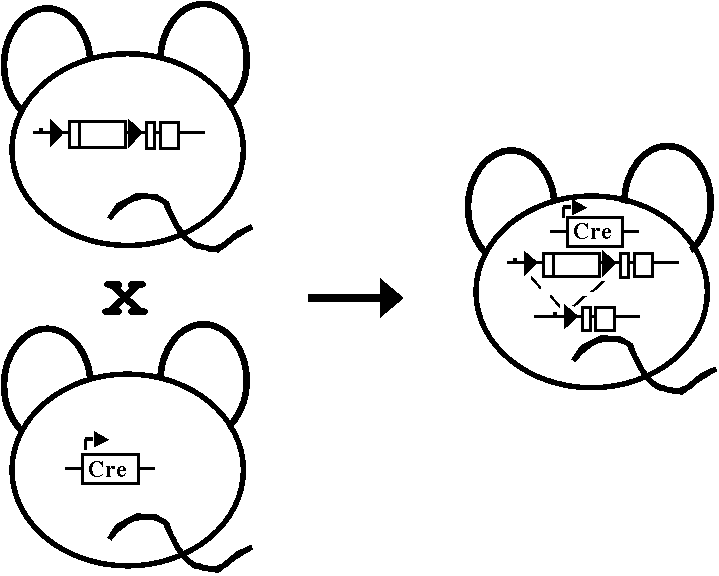
Institute for Genetics
Mouse Genetics and Inflammation
Laboratory
| Home |
| Research Topics |
| Members |
| Open Positions |
| Publications |
| Links |
| News |
| Alumni |
10/04/2007
| Research Topics |
Our group focuses on studying the role of inflammation in disease pathogenesis. Inflammatory responses are regulated by intracellular signalling cascades, such as the NF-kB and MAP kinase pathways, that are activated downstream of cytokine receptors (e.g. TNFR, IL-1R) or innate immune receptors (e.g. Toll-like receptors, NOD-like receptors). The NF-kB pathway functions in essentially all mammalian cell types and is activated in response to injury, infection, inflammation and other stressful conditions requiring rapid reprogramming of gene expression. Genes regulated by NF-kB include cytokines and chemokines, adhesion molecules, regulators of cell survival, proliferation and apoptosis, acute phase proteins and proteins important for protection from oxidative stress. Due to its central role in regulating cellular responses to inflammation and injury, the NF-kB pathway is implicated in the pathogenesis of inflammatory diseases and cancer. Activation of NF-kB is mediated by the IkB kinase (IKK), which consists of the IKK1 and IKK2 catalytic subunits and a regulatory subunit called NEMO. NF-kB pathway
Our research aims to understand the function of NF-kB and MAP kinase pathways in the pathogenesis of inflammatory diseases. For these studies, we have chosen the mouse as our primary experimental system. Current genetic technology permits the manipulation of the mouse genome with nucleotide precision allowing the targeted modification of selected genes. Recombinase-assisted (Cre/loxP) conditional gene targeting also allows studying the role of genes in specific cell types in adult mice, thus making the mouse an excellent model organism to study gene function in vivo. In addition, many human diseases can be modelled in the mouse allowing its use as an experimental model to study mechanisms of disease pathogenesis. Using conditional gene targeting we study the role of NF-kB and MAP kinase signaling in mouse models of inflammatory diseases such as multiple sclerosis, hepatitis and liver cancer, inflammatory bowel disease and psoriasis.
Cre/loxP mediated conditional gene targeting
|



